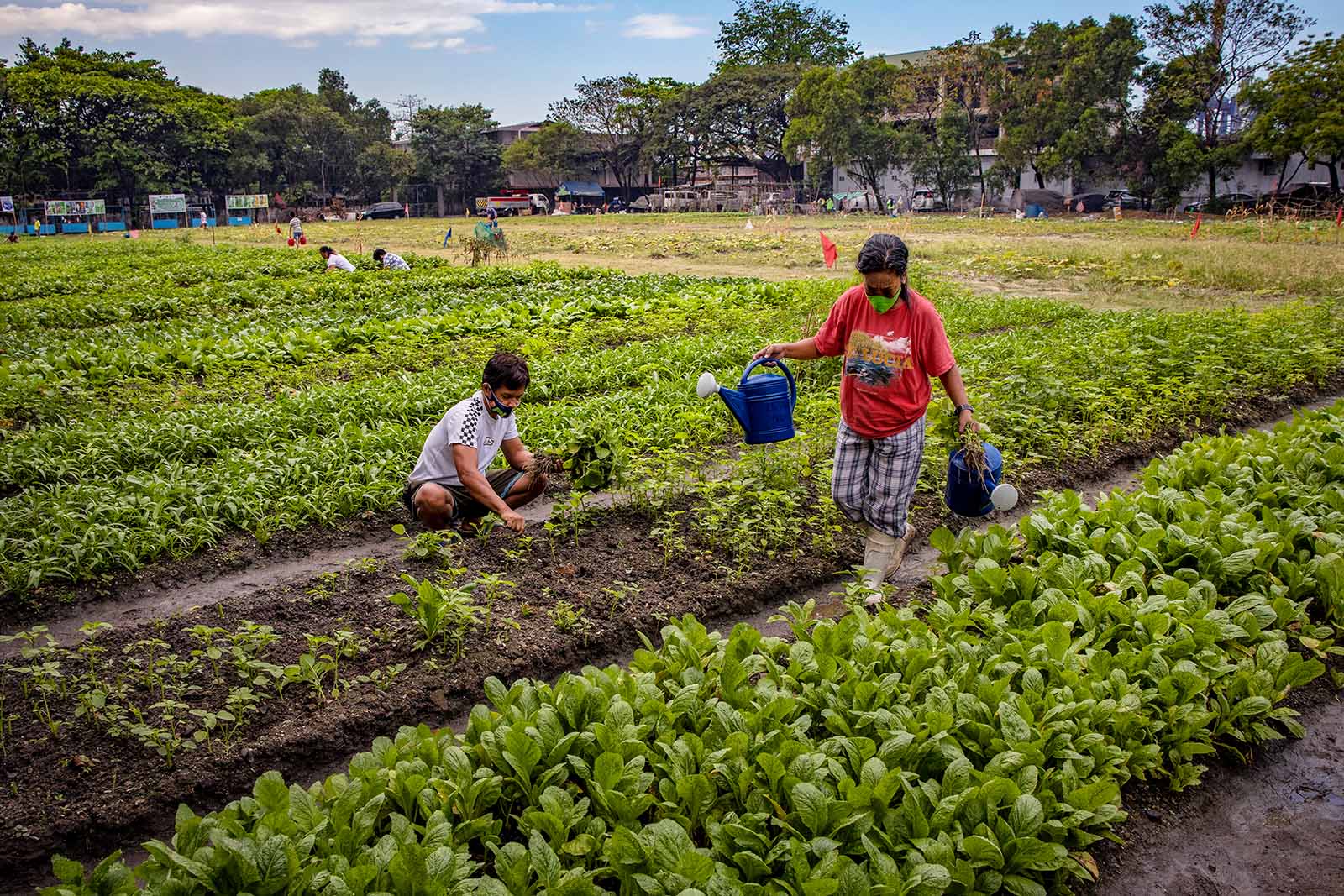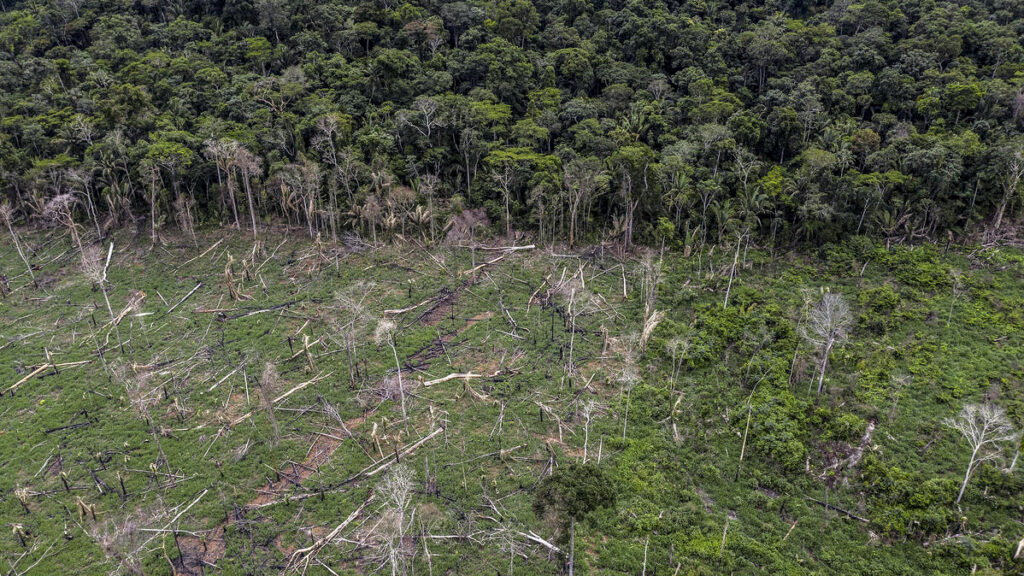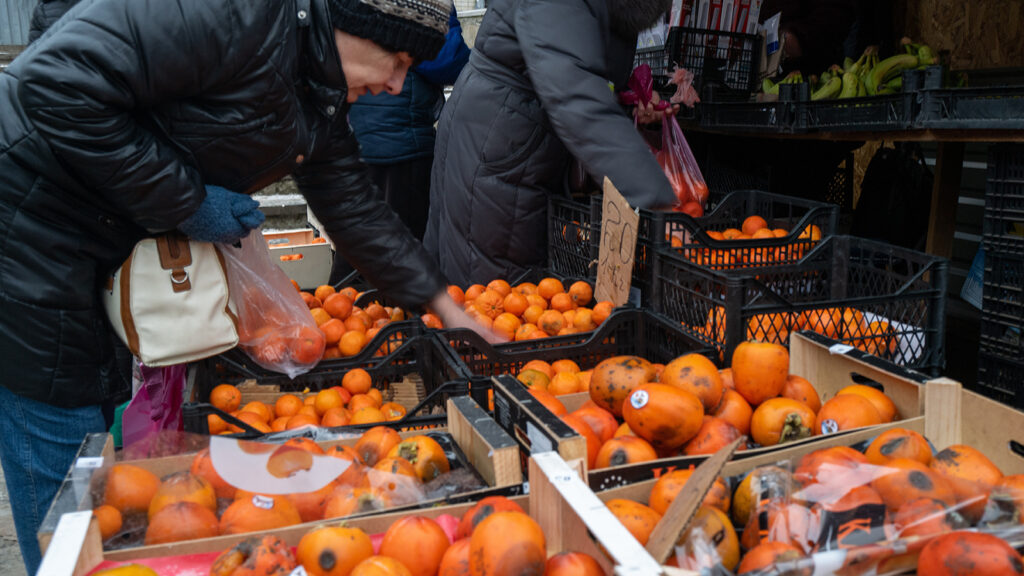5 Ways to Transform Our Food System to Benefit People and the Planet

Residents tend to their crops in a football field that has been converted into a community farm in Manila, Philippines. As the world’s population continues to grow, people will depend on farmers for food more than ever before.
Photo: Ezra Acayan/Getty Images
Food is essential for our survival, a fundamental requirement of life and the provider of strength, vitality and energy. It is also the keeper of our cultural traditions and indispensable to our social lives — think of any celebration, and it will involve food.
However, our relationship with food is dangerously imbalanced. We produce enough food but nearly one in 10 people still don’t have sufficient to eat, and three billion cannot afford a healthy diet. At the same time, we waste one-third of all food produced along with the natural resources that went into its production.
Our food and agricultural systems stretch planetary boundaries beyond their limits. By valuing quantity over quality and driving farmers to produce monocrops for low prices, we use the natural resources needed for sustained production and degrade the land, leading to climate change and extreme weather events.
As the coronavirus crisis unfolded, we started to understand how fragile our food systems are. We saw news stories of food destroyed, milk dumped and crops rotting in the fields, while consumers faced empty shelves. Our complicated global supply chains couldn’t adapt fast enough to our changing realities.
To mend our damaged relationship with food, there are critical questions we need to answer: How do we produce sufficient food that’s healthy for both the people who produce it and the people who eat it? How do we ensure our food systems are fair, resilient and equitable? How can we feed our growing global population and protect our planet for generations to come?
We have a choice: We can continue to grow our food systems in a linear, exploitative and extractive way; or we can move to a system that promotes biodiversity, regeneration, nutritious food, equity and healthy people.
We believe the decision is clear. We must choose to work with the planet — not against it — for the benefit of people and the planet by following these principles:
Harness the Regenerative Power of Our Earth
This is critical to overcoming the biggest challenges of our time: a degrading environment, loss of biodiversity and climate change. Regenerative agriculture leads to healthy soil, capable of producing high quality, nutrient-dense food. It also improves rather than degrades the land and supports productive farms and healthy communities and economies. This helps safeguard farmers’ livelihoods so they can grow the food we need now and in the future.
Build Stronger Local and Circular Food Systems
Building stronger local and circular food systems helps to keep valuable natural resources, minerals and nutrients in the loop. Circular agribusinesses not only provide excellent environmental solutions, they also create jobs and reduce countries’ dependency on imports.
Wastewater, for example, can be treated to extract important finite minerals like phosphates. Food loss and waste can be composted so valuable nutrients return to the soil instead of being thrown away. And organic farm waste can be used for bioenergy to power homes and agribusinesses. New, nature-based technologies, such as the use of black soldier flies to compost waste, can generate multiple useful products including compost, fertilizer and animal feed.
Give Farmers a Voice and Support Their Planet-Positive Choices
As the world’s population continues to grow, people will depend upon farmers for food — more than ever before. We must empower farmers to drive solutions and be at the forefront of a global regenerative revolution by making them an integral part of policy discussions. They can help build the system of products and services that are locally relevant and reduce dependency on patented and/or chemical inputs.
Move From Low Cost to True Cost
Paradoxically, cheap food is expensive for people and the planet. It keeps us locked into an unsustainable food system that costs the global economy significant amounts of money. The current price of food does not factor in the health bill generated by unhealthy diets or the cost of land degradation and biodiversity loss.
Furthermore, low wages for farmers make agriculture an unpredictable and often unsafe sector. To get back on track, we need greater consumer awareness and public policies that value nutritious diets, a healthy environment and farmers who practice regenerative agriculture.
Foster Radical Collaboration
Though we’re hopeful for the future, we are quickly running out of time. We urgently need to remove the barriers that prevent us from transforming the way we produce and consume food. This involves changing mindsets, trying new things and learning fast.
We don’t yet know all the answers, but we do know that business-as-usual is the problem. We must change course and do it now. This is only possible through collaboration between farmers, consumers, funders, governments, businesses and NGOs.
Together, we can work toward a food system that not only feeds us but also celebrates life — one that nurtures people, adds color and flavor to our plates and palates and, most importantly, ensures a future for ourselves on this planet.
This piece was originally published in the World Economic Forum.










